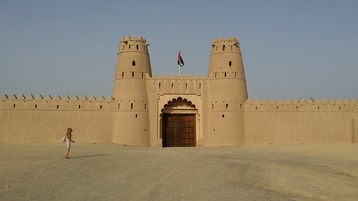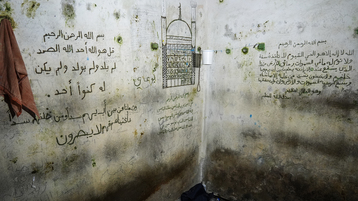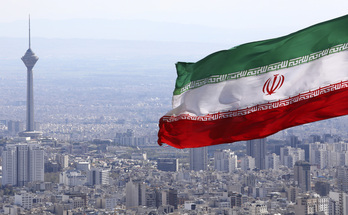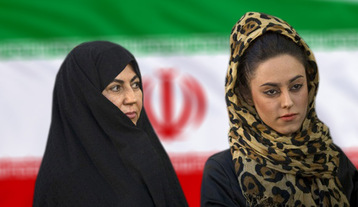-
The end of Iran's sham elections
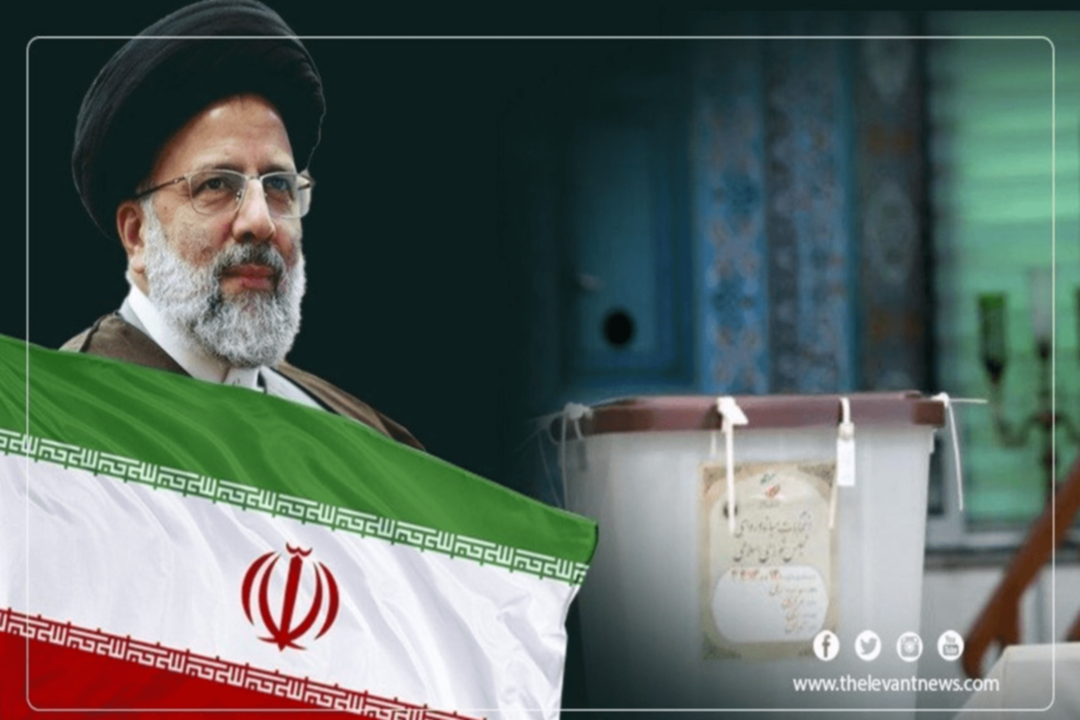
Finally, despite the boycott of the majority of the Iranian, which was in fact a big "no" to both factions of the clerical regime of Velayat-e-Faqih, Khamenei, as expected, inconsiderate of the public sphere, pulled out the person he wanted from the ballot box. He appointed Ibrahim Raisi as the seventh president of Iran, a man whom Amnesty International has called on the UN Human Rights Council to set up a mechanism to investigate his "crimes" against humanity. Someone who has been on the US and EU sanctions lists for his role in the violation of human rights and the massacre of people. elections
According to eyewitnesses in various Iranian cities, most polling stations were completely deserted, indicating widespread boycotts of the election by the majority of the population. In spite of this reality, however, as it has been common practice by Khamenei to legitimize the elections and his regime, he claimed that more than 28 million people, or nearly 50% of eligible voters had cast their ballots, quintupling the actual number of vote casters.
While according to reports, and numerous clips that are made by witnesses in various polling stations in different cities of Iran and published in cyberspace, the turnout in this election show was less than 10% of eligible voters.
In this way, Khamenei, with his contractionary policy that he had already started,took control of all affairs by removing all the leaders of the so-called reformist faction and even his former trusted officials to build a unified government and parliament solely from his affiliated faction. He seems to have drawn his last card to guarantee the survival of his regime.
Of course, it is inconceivable that Ebrahim Raessi, because of his brutal nature, which is based solely on the execution and repression and physical elimination of dissidents, and also, because of his backward and reactionary views, can solve any of the people demands, like freedom and improvement of economic situation. As a result, he will try to silence any opposition by using the Revolutionary Guards as its arm of repression, in the way that dictators usually do, that is, to suppress the opposition more and more nakedly. elections
But how successful he will be is something that will become clear in the not-too-distant future. Because, the people of Iran have now reached a level of misery where 80% of them live below the poverty line and have nothing more to lose. Before this same election Iranians in different cities, in street speeches without fear of the consequences of their words, expressed their desire to overthrow the regime in its entirety and blamed Ali Khamenei for this situation.
It is noteworthy that until a few years ago, no one dared to speak out against Khamenei in public, and people expressed their dissatisfaction by blaming Hassan Rouhani and his government. But now people were threatening to overthrow Khamenei with the sharpest and even insulting words. Therefore, suppressing the people will not be as easy as before because of the scale of dissatisfaction even though the president and members of parliament are now all members of the hardline faction.
Of course, as far as the repression of the people is concerned, there is basically no difference between the reformist and hardline factions, and both factions have always agreed on this point. As most of the repressions took place during the presidency of the so-called reformist faction. Such as, the crackdown on students during Khatami's presidency in July 1999, when security forces threw students down from the third floor of dormitories, killing or imprisoning many.
Or during the protests of the people against the tripling gasoline price during the presidency of Hassan Rouhani in November 2019, when the security forces shot dead 1,500 people in the streets and imprisoned more than 12,000 people. And this is in spite of the fact that Hassan Rouhani has not until today confessed to committing this crime, nor has he announced the number and names of the martyrs. elections
Unfortunately, other countries focus more on the regime's foreign policy than on Iran's internal affairs. For them, the priority is for the regime not to acquire nuclear weapons, to limit its missile programs and interventions in the countries of the region. But since the nature of this regime is based on two pillars of internal repression and export of fundamentalism to other countries, and considers the acquisition of nuclear weapons as a means of its survival, Khamenei will never comply with these demands of the West. Experience has shown that the only language that can dialogue with this regime is the language of determination.
Now Khamenei, assuming that Joe Biden along with his new administration is not a warlord and wants to withdraw his forces from Afghanistan and other Middle Eastern countries, he has opted an aggressive policy and wants to impose his demands by threatening to increase enrichment if the United States does not lift sanctions and will no longer allow IAEA to inspect the suspected sites.
However, a glance at regime’s history shows that the appointment of Ibrahim Reisi as President of Iran is not a sign of power but an indicator of Khamenei's weakness in handling numerous internal challenges, the demands of different segments of people and their livelihood problems. Naturally, in the future, this situation will prepare the atmosphere for wider protests for the people and their desire for a regime change. elections
by: Cyrus Yaqubi levant
Cyrus Yaqubi is a Research Analyst and Iranian Foreign Affairs Commentator investigating the social issues and economy of the middle east countries in general and Iran in particular.
You May Also Like
Popular Posts
Caricature
BENEFIT AGM approves 10%...
- March 27, 2025
BENEFIT, the Kingdom’s innovator and leading company in Fintech and electronic financial transactions service, held its Annual General Meeting (AGM) at the company’s headquarters in the Seef District.
During the meeting, shareholders approved all items listed on the agenda, including the ratification of the minutes of the previous AGM held on 26 March 2024. The session reviewed and approved the Board’s Annual Report on the company’s activities and financial performance for the fiscal year ended 31 December 2024, and the shareholders expressed their satisfaction with the company’s operational and financial results during the reporting period.
The meeting also reviewed the Independent External Auditor’s Report on the company’s consolidated financial statements for the year ended 31 December 2024. Subsequently, the shareholders approved the audited financial statements for the fiscal year. Based on the Board’s recommendation, the shareholders approved the distribution of a cash dividend equivalent to 10% of the paid-up share capital.
Furthermore, the shareholders endorsed the allocation of a total amount of BD 172,500 as remuneration to the members of the Board for the year ended 31 December 2024, subject to prior clearance by related authorities.
The extension of the current composition of the Board was approved, which includes ten members and one CBB observer, for a further six-month term, expiring in September 2025, pending no objection from the CBB.
The meeting reviewed and approved the Corporate Governance Report for 2024, which affirmed the company’s full compliance with the corporate governance directives issued by the CBB and other applicable regulatory frameworks. The AGM absolved the Board Members of liability for any of their actions during the year ending on 31st December 2024, in accordance with the Commercial Companies Law.
In alignment with regulatory requirements, the session approved the reappointment of Ernst & Young (EY) as the company’s External Auditors for the fiscal year 2025, covering both the parent company and its subsidiaries—Sinnad and Bahrain FinTech Bay. The Board was authorised to determine the external auditors’ professional fees, subject to approval from the CBB, and the meeting concluded with a discussion of any additional issues as per Article (207) of the Commercial Companies Law.
Speaking on the company’s performance, Mr. Mohamed Al Bastaki, Chairman BENEFIT , stated: “In terms of the financial results for 2024, I am pleased to say that the year gone by has also been proved to be a success in delivering tangible results. Growth rate for 2024 was 19 per cent. Revenue for the year was BD 17 M (US$ 45.3 Million) and net profit was 2 Million ($ 5.3 Million).
Mr. Al Bastaki also announced that the Board had formally adopted a new three-year strategic roadmap to commence in 2025. The strategy encompasses a phased international expansion, optimisation of internal operations, enhanced revenue diversification, long-term sustainability initiatives, and the advancement of innovation and digital transformation initiatives across all service lines.
“I extend my sincere appreciation to the CBB for its continued support of BENEFIT and its pivotal role in fostering a stable and progressive regulatory environment for the Kingdom’s banking and financial sector—an environment that has significantly reinforced Bahrain’s standing as a leading financial hub in the region,” said Mr. Al Bastaki. “I would also like to thank our partner banks and valued customers for their trust, and our shareholders for their ongoing encouragement. The achievements of 2024 set a strong precedent, and I am confident they will serve as a foundation for yet another successful and impactful year ahead.”
Chief Executive of BENEFIT; Mr. Abdulwahed AlJanahi commented, “The year 2024 represented another pivotal chapter in BENEFIT ’s evolution. We achieved substantial progress in advancing our digital strategy across multiple sectors, while reinforcing our long-term commitment to the development of Bahrain’s financial services and payments landscape. Throughout the year, we remained firmly aligned with our objective of delivering measurable value to our shareholders, strategic partners, and customers. At the same time, we continued to play an active role in enabling Bahrain’s digital economy by introducing innovative solutions and service enhancements that directly address market needs and future opportunities.”
Mr. AlJanahi affirmed that BENEFIT has successfully developed a robust and well-integrated payment network that connects individuals and businesses across Bahrain, accelerating the adoption of emerging technologies in the banking and financial services sector and reinforcing Bahrain’s position as a growing fintech hub, and added, “Our achievements of the past year reflect a long-term vision to establish a resilient electronic payment infrastructure that supports the Kingdom’s digital economy. Key developments in 2024 included the implementation of central authentication for open banking via BENEFIT Pay”
Mr. AlJanahi concluded by thanking the Board for its strategic direction, the company’s staff for their continued dedication, and the Central Bank of Bahrain, member banks, and shareholders for their valuable partnership and confidence in the company’s long-term vision.
opinion
Report
ads
Newsletter
Subscribe to our mailing list to get the new updates!



